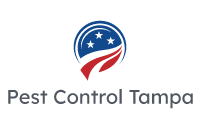Sure, here’s a brief introduction for your blog article on «What does Windex do to flies?»:
Discover the surprising power of Windex when it comes to dealing with pesky flies! If you’ve ever wondered about the effectiveness of this household cleaner against these annoying insects, you’re in for a treat. In this article, we’ll explore the science behind Windex’s impact on flies and how to use it effectively in your pest control routine. Get ready to say goodbye to those buzzing pests!
The Fly-Fighting Power of Windex: Myth or Miracle in Pest Control Tampa?
The Fly-Fighting Power of Windex: Myth or Miracle in Pest Control Tampa?
When it comes to battling flies in Tampa, many homeowners are constantly on the lookout for effective and convenient solutions. One persistent rumor that has circulated is the effectiveness of Windex as a pest control remedy. But is this just a myth or a true miracle?
Windex, a popular household glass cleaner, is said to have the power to kill flies upon contact. According to some homeowners, a simple spray of Windex can instantly immobilize these pesky insects, making them easier to eliminate. But is there any scientific evidence to support these claims?
Unfortunately, there is no concrete scientific proof that supports the fly-fighting power of Windex. While it may indeed temporarily immobilize flies, it is unlikely to kill them instantly. Flies are hardy creatures and require more potent insecticides to be effectively eliminated.
However, it is important to note that Windex can still be a useful tool in managing flies in conjunction with other pest control methods. Regularly cleaning surfaces with Windex can help remove food residue and discourage flies from congregating. Additionally, using Windex as a cleaning agent can help maintain a clean and sanitary environment, which is essential in preventing fly infestations.
In conclusion, while Windex may not be a miracle solution for pest control in Tampa, it can play a supportive role in keeping flies at bay. Remember to rely on proven pest control methods and consult with professionals for comprehensive fly eradication.
Frequent questions
How effective is Windex in controlling flies in Tampa’s pest control?
Windex is not an effective solution for controlling flies in Tampa’s pest control. While Windex may temporarily repel or kill a few flies upon direct contact, it is not a reliable or long-term solution for fly control. Flies are attracted to various factors such as food debris, garbage, and organic matter, which requires a more comprehensive approach to eliminate their breeding and harborage sites.
To effectively control flies in Tampa, it is recommended to implement integrated pest management strategies. This includes proper sanitation practices to eliminate potential food sources and breeding grounds, installing window screens and door sweeps to prevent their entry, using fly traps and baits, and considering professional pest control services for more severe infestations.
It’s important to consult with a licensed pest control expert who can assess the specific fly infestation in your area and provide appropriate treatment options that adhere to Tampa’s pest control regulations.
Does Windex kill flies instantly or do they die later after being sprayed?
Windex is not specifically formulated to kill flies, but it can be effective in eliminating them. When sprayed directly on flies, Windex may cause them to become disoriented or immobilized, but it does not necessarily kill them instantly. They may die later as a result of the chemical exposure or dehydration. It is important to note that using Windex as a fly control method is not recommended as there are more effective and targeted pest control products available. It is always best to consult a professional pest control service in Tampa for long-term and efficient fly control solutions.
Can using Windex attract more flies in the long run, or does it actually help reduce their population?
Using Windex to clean up flies does not attract more flies in the long run. However, it may not help reduce their population efficiently.
Windex is a cleaning product that can be used to kill flies on contact. When sprayed directly on flies, it can immobilize them and eventually cause their death. While this may provide immediate relief by getting rid of individual flies, it does not address the root cause of the fly infestation.
Flies are attracted to various sources such as food waste, decaying organic matter, or unsanitary conditions. To effectively reduce their population, it is crucial to eliminate these attractants and implement comprehensive pest control measures. This may include proper sanitation practices, sealing entry points, using fly traps or baits, and implementing residual insecticide treatments.
Using Windex alone may not be sufficient to control fly populations in the long run. It is best to consult with a professional pest control company in Tampa that specializes in integrated pest management techniques. They can assess the situation, identify the underlying causes of the infestation, and develop an effective pest control plan tailored to your specific needs.
In conclusion, Windex proves to be an effective solution for dealing with flies in the context of Pest Control Tampa. Its unique combination of ingredients, including ammonia and detergents, disrupts the fly’s respiratory system, making it difficult for them to breathe. Additionally, when sprayed directly on flies, Windex can act as a contact insecticide, eliminating them on contact. However, it is important to take precautions when using Windex, such as avoiding contact with skin or eyes, as it is primarily designed for cleaning surfaces. As part of an integrated pest management approach, incorporating Windex alongside other pest control methods can help maintain a fly-free environment in Tampa. So, next time you spot pesky flies invading your space, reach for that bottle of Windex and bid them farewell.
